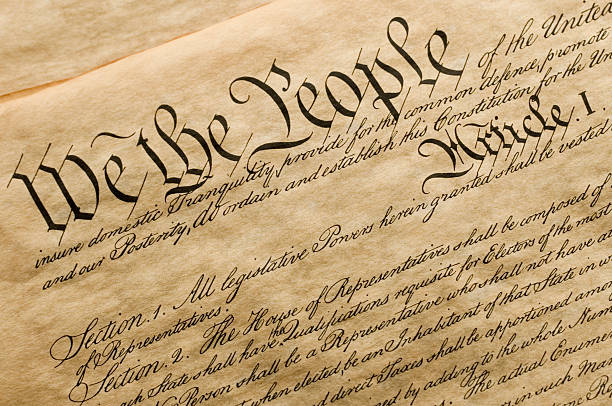
By: Emily Donohue
A trademark is a “word, phrase, symbol, and/or design that identifies and distinguishes the source of the goods of one party from those of others.” Registered trademarks are both valuable assets to companies and helpful to potential consumers evaluating a purchase. Building goodwill with consumers takes time, and without the protection of a registered trademark, a company’s reputation could be tarnished by a competitor selling deceptively similar products or services of inferior value.
The recognizable trademark of a trusted brand signals to a consumer that their purchase will conform to the quality they expect from the brand. Conversely, if a brand has a poor reputation, a consumer knows to avoid the product. Considering the economic value of a properly registered trademark, one would assume that companies doing business in the United States take great care to ensure their trademarks are protected. However, the recently updated rule from the United States Patent and Trademark Office (USPTO) implies otherwise.
As of August 3, 2019, only U.S.-licensed attorneys may represent foreign trademark filers, which is a departure from the former rule that allowed foreign-domiciled filers to hire foreign attorneys or represent themselves pro se in registration proceedings. According to the USPTO, the shift in rules is meant to crack down on fraud and “result in a more accurate and reliable trademark register, which would have the benefit of generally reducing costs to applicants, registrants, and parties and providing greater value to consumers who rely on registered marks.”
The new rule, however, does not extend to U.S. citizens. Instead, U.S. citizens are only encouraged to hire an attorney to represent them in trademark registration matters. The USPTO’s rule thus distinguishes U.S. citizens who are filing for trademark registration from foreign applicants and requires legal representation only for the latter. This distinction based on national origin seems to suggest that U.S. citizens with no legal training have some inherent ability to understand the intricacies of U.S. trademark laws, while foreign citizens or attorneys do not. This notion is not only preposterous, but likely violates the Equal Protection Clause of the 14th Amendment.
The Equal Protection Clause prevents the government from creating laws that intentionally discriminate on the basis of a suspect classifications. In this case, that suspect classification is national origin. Because the new USPTO rule differentiates between U.S. citizens and foreign applicants, it would be evaluated under strict scrutiny, if challenged. The government would need to show that the law is “narrowly tailored” to serve a “compelling government interest” for the rule to remain in force. While the Courts have never brightly defined how to determine if an interest is compelling, the concept generally refers to something necessary or crucial, as opposed to something merely preferred. Examples include national security, preserving the lives of a large number of individuals, and not violating explicit constitutional protections. Narrow tailoring requires that the law capture no more or less than is absolutely necessary to advance those compelling ends.
The USPTO claims that the new rule is a response to consistent issues caused by a surge of improper foreign filings, and that the change is necessary to enforce regulatory compliance and preserve the integrity of trademark registrations in the U.S. Further, the USPTO claims that current sanctions are inadequate to curtail fraudulent submissions (e.g., foreign applicants supporting their claims with digitally altered samples, or using false address information to circumvent USPTO regulations). Although, in theory, any registrant would be subject to criminal penalties for knowingly making false statements to the U.S. Government, in reality it can be difficult to subject foreign applicants to U.S. jurisdiction to punish these violations. The USPTO seems confident that the new rule will eliminate this problem: “Under the…rule, submissions would be made by practitioners subject to the disciplinary jurisdiction of OED [Office of Enrollment and Discipline], making it less likely that they would be signed by an unauthorized party or contain statements that are inaccurate…”
Given this explanation and because “compelling government interest” is a relatively ambiguous term, the government could make the case that the new rule serves a compelling interest. However, since the rule applies to any non-U.S. registrant, it is probably too broad to satisfy the requirement that it be narrowly tailored to this interest, and thus likely won’t prevail under strict scrutiny. Because the new USPTO rule is discriminatory toward anyone who is not a U.S. citizen and would presumably fail under a strict scrutiny analysis, it is a violation of the Equal Protection Clause of the 14th Amendment and should be repealed.